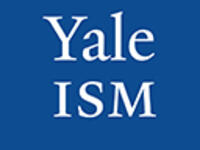
The Liturgical Octoïchos in the Syriac Orthodox Church
Part of the 2009-2010 Liturgy Symposium
Institute of Sacred Music Great Hall, 409 Prospect Street
Refreshments for mind, body, and spirit will be served. Free and open to the public.
The term “Octoïchos” describes the system of the eight ecclesiastical modes that is used in Ecclesiastical Chant. The system is very complex and can be sometimes confusing for modern listeners. Beyond its music theoretical significance, the system of the eight modes was also frequently charged with symbolic meaning. One of these symbolic interpretations is a fascinating connection between the modes and the liturgy.
The liturgy is a story of salvation. The seven days of the week and the cyclical sequence of daily services, which culminate in the mass on Sunday, remind us of the seven days of the creation; however, the cycle also confronts us of the imperfection of earthly life. Our hopes are directed towards the eighth day, the day that is never reached within the weekly liturgical cycle. It is the first day of heaven, when all counting stops and timeless life begins. On the eighth day we rest with /at the same time that God rested. Hence, the perfect cycle of the eighth modes (the Octoïchal Cycle) is a symbol for the eschatological fullness of the history of salvation.
In spite of more than 1000 years of history, the number of modes never changed; we neither find less than eight modes nor do we find more. The reason for this is a theological one: The number eight symbolizes perfection. It symbolizes the entry into eternity, leading the weekly liturgical cycle to its ultimate end: the eternal Day of God.
This symbolism could be viewed as a secondary, theologically motivated interpretation of a musical phenomenon. But it is more than that. For the Syriac Church, on which the talk will focus, this symbolism describes an important aspect of its musical and liturgical identity.
Rev. Prof. Elias Kesrouani is visiting professor of Ethnomusicology at the Yale Institute of Sacred Music. He is fluent in English, French, Arabic, Syriac, and Italian, with internationally reputed compositions in Syriac and Arabic. He has participated in many international conferences, concerts, and colloquia, among them an international conference at Yale Institute of Sacred Music in 2007; a concert at Royaumont Research Center in France, 2007; and the scientific colloquium of the Arab Academy of Music in Cairo (annually since 1996). He recently represented Lebanon at a meeting of experts in New Delhi, organized by UNESCO, which discussed the “Convention for the Safeguarding of the Intangible Cultural Heritage”.
A brief survey of his CV reveals high-level participation in a plethora of academic activities that have taken him to Italy, Algeria, Greece, Morocco, Oman, Jordan, the Netherlands, Bahrain, Tunisia, Syria, Turkey, Kuwait, United Kingdom and Spain. His many publications include his piece on the “Hymnological Thesaurus (Bet-Gazo) of the Syriac Church,” in Nos Sources, Arts et literature Syriaques, Coll: Sources Syriaques, ed.: CERO 1, Centre d’Etudes et de Recheerches Orientales, Antélias Liban, 2005; and his “The Syriac Octoïchos, in the book Aspects de la Musique Liturgique au Moyen Age, Rencontres à Royaumont, Editions Creaphis, 1991.
In addition to being a member in a number of significant scientific committees with UNESCO and the Arab Academy of Music attached to the Arab League, Reverend Kesrouani has occupied many prestigious posts in the past, among the most important being the Deanship of the Jordan Academy of Music, and professorships at the University of the Holy Spirit, Kaslik, and the Higher Lebanese Conservatoire of Music, Beirut. His present position finds him as the founder and Research Professor of NDU’s Department of Music and Musicology where, since 2002, he has achieved what is one of his most notable accomplishments: the creation of a new university discipline called “Musimedialogy” registered Intellectual Property in 163 countries. Professor Kesrouani is also co-director of Ph. D. research at the Sorbonne Paris IV University for Oriental Ethnomusicology. B.A., University of the Holy Spirit; M.A., Lebanese University; Ph.D. Sorbonne Paris IV University.